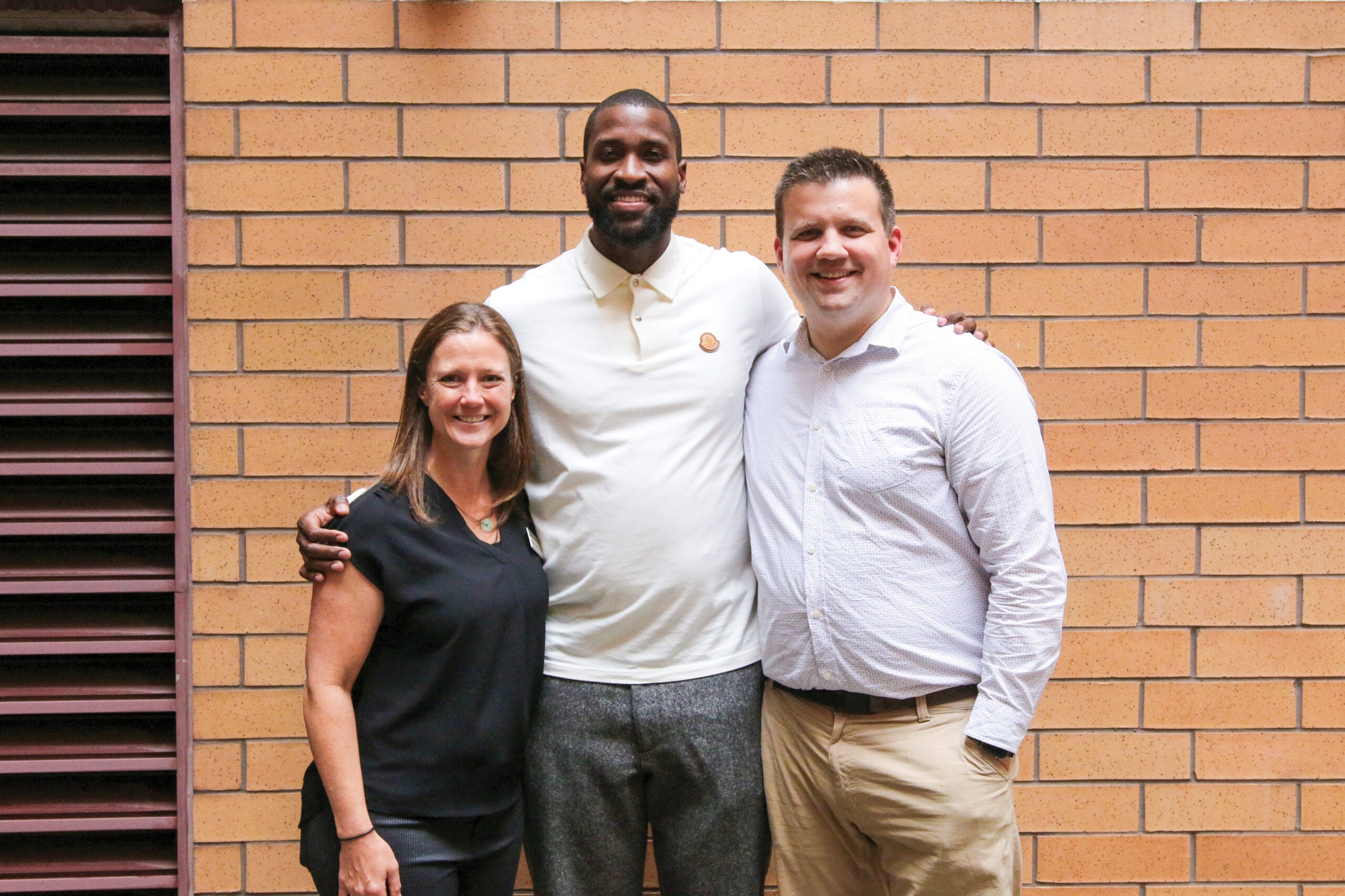Former NBA basketball star Michael Kidd-Gilchrist stands tall as an advocate for children who stutter.
As a person who has stuttered since a very young age, Kidd-Gilchrist was instrumental in securing passage of a new Pennsylvania law, House Bill 2268, sponsored by State Representative Brandon Markosek. Passed on Oct. 16, 2024, the new bill guarantees private insurance coverage of unlimited stuttering therapy for children from 2 to 6 years of age.
There is no limit to the amount of therapy a child can receive, and there is no need for a specific medical diagnosis.
Associate Professor Mandy Hampton Wray, Department of Communication Science and Disorders (CSD), says this legislation is long overdue.
“While there is no cure for stuttering, providing young children with stuttering therapy is a proven way to help them learn how to manage their stuttering and help them to become confident communicators,” explains Hampton Wray.
“Children who stutter may feel isolated,” she continues. “They may be bullied or teased and that can result in anxiety and a reluctance to speak sometimes. Through stuttering therapy, we work to give them the tools they need so they won’t have to hide their stuttering. They can be themselves.”
Advocacy and Education: A Winning Combination.
In 2021, Kidd-Gilchrist created Change & Impact, a stuttering initiative with a mission to improve access to health care and expand services and resources for those who stutter. In addition to lobbying for legislation, he frequently visits universities, including the University of Pittsburgh, to promote the need for more advanced education about how to address stuttering in children.
On Nov. 15, 2024, he visited Pitt as a special guest during a professional development day for school-based speech-language pathologists (SLPs). He spoke about the new bill and the importance of providing stuttering therapy to young children.
Among those in attendance were SLPs from Pittsburgh Public Schools, the Allegheny Intermediate Unit and other local school districts. They received a full day of training on best practices in stuttering from Hampton Wray and alumnus Seth Tichenor (SLP ’13), assistant professor at Duquesne University’s Department of Speech-Language Pathology.
According to Hampton Wray, many SLPs do not feel adequately prepared to work with people who stutter. The professional development day expanded their knowledge of stuttering therapy and showed them how to integrate it into their caseloads.
“There used to be a focus on ‘fixing’ children who stutter,” says Hampton Wray. “In our professional development day, we helped the SLPs understand that it’s okay for a child to stutter.”
Changing the Mindset
Hampton Wray says this is a big shift in mindset. “We went from ‘fixing’ the problem to supporting the stuttering child. We do not want children to develop speaking habits where they avoid words, speaking situations or do not say what they want to say for fear of stuttering. Instead, we’re working with children and adults to help them develop the confidence to say what they want to say when they want to say it, even if they stutter when they say it. Their words and their voice are important. They can still be heard.”

“Effective therapy for stuttering is all about empowerment,”says Tichenor. “It helps the child learn they are not alone and they aren’t different. It teaches them that they don’t have to internalize the negative thoughts and feelings they’re experiencing—and helps them understand what they can actually control versus what they cannot control.”
“When we teach kids to advocate for themselves, stuttering has less impact on their daily lives,” adds Hampton Wray. By working with individuals like Kidd-Gilchrist and his Change & Impact initiative, and by continuing to educate current and future SLPs, Hampton Wray hopes to expand access to excellent stuttering therapy for everyone who needs it.

“Although society often values fluent speech, we are working to help society understand stuttering,” Hampton Wray continues. “Stuttering is simply the way some people talk, and not a reflection of any other personality traits. The world is filled with phenomenal people who stutter, and stuttering doesn’t have to be a barrier for any goals or interests a person may have. Working with Michael Kidd-Gilchrist helps people see that stutterers can do great things, including win championships and play in the NBA.”

